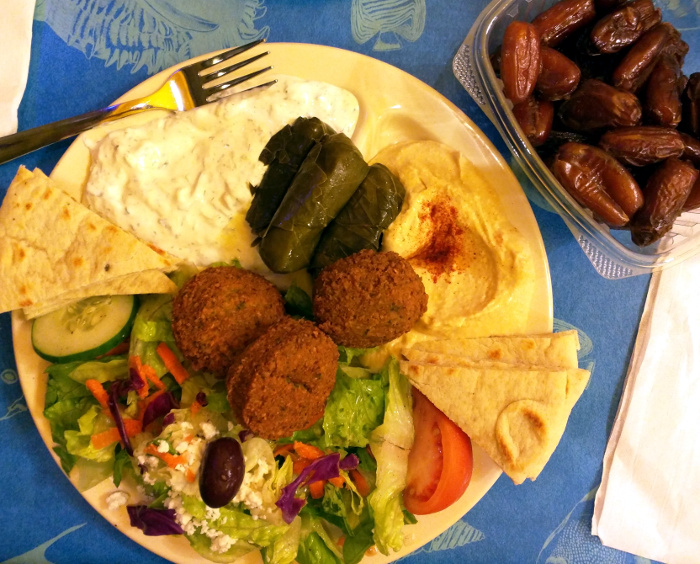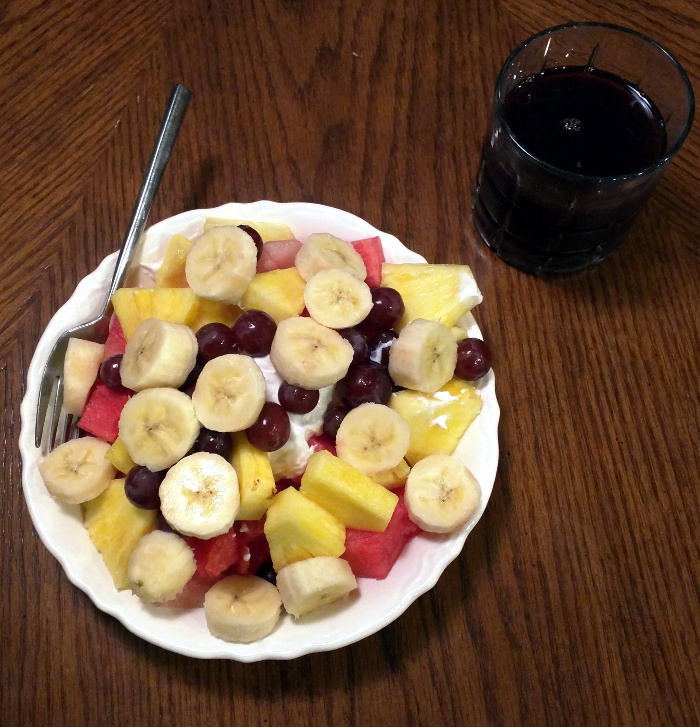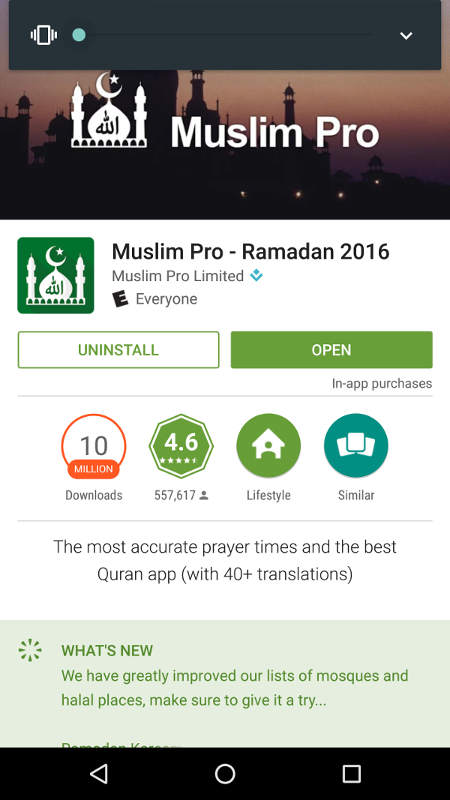According to my phone, dawn arrived at 04:37, so no food or drink until 20:37 tonight.
In Arabic Fajr means “dawn” and it is also the name of the first of five daily prayers practicing Muslims make.
For this post I thought I’d share some of my views on religion. Since this can be a sensitive topic I do want to stress that these are my views and I am not trying to force them on anyone or to suggest that your views are wrong.
I was raised in the Presbyterian Church where I was baptized and confirmed when I was old enough. My mother was raised Catholic and on my Father’s side the men were raised Presbyterian and the women Catholic, so I have some exposure to Catholicism. My middle name is “Paul” after Pope Paul VI, as my maternal grandmother wanted to make sure I had a good saint’s name after I was christened “Tarus”.
In my teens I went through the same period of questioning that a lot of kids go through. I think there was a time that I would have claimed to be an atheist, but that passed as I experienced more of the world.
For example, take a look at your hand. As I look at mine I see lines across my palm, a cut on my index finger that I got from swapping a hard drive in an old Mac Mini earlier this week, nails that need trimming with a small amount of dirt underneath them from loading hay in the barn yesterday. The human hand is an amazing thing, and I can’t help but think that there was something spiritual in its creation. It is so well designed.
At some point in my life I accepted Pascal’s Wager. Since the rewards of believing in God are infinite and there is a finite possibility God exists, one should believe in God since you have everything to gain and little to lose. But then the choice became: which God?
I actively explored a lot of religions, but organized religion seemed to have one main flaw: they all want to answer the questions for you that are the most worth asking.
For example, I bet I could take two twin women, religious spinsters together all of their lives, and find some point of religion on which they disagree. It isn’t cut and dried. The word of God, whether it comes from the Bible, the Qu’ran or the Torah, requires interpretation.
Now, if I take St. Thomas Aquinas’s argument of the existence of God through perfection, a perfect God would have given me an ability to reason my way to being the best person I could be. In other words, I should be able to determine, with study, right from wrong, and then take action because I believe it in my heart and not because some guy in dark clothes told me I had to or I would go to Hell.
So I spend a lot of time thinking about what are the right things to do and what are wrong.
One of my “holy” books is The Tao of Pooh by Benjamin Hoff. I keep a copy by my desk for those hard days. In it, he explains in simple terms concepts of the Tao, the idea that everything is connected and that there are certain harmonies to existence. When one is in sync with those harmonies, it is known as “happiness”. If you work against them, you will be unhappy. This is a gross oversimplification but I hope you get the gist. If I had to put a label on my religion, I would chose “lapsed Taoist”.
I also consider myself a Christian as in “a follower of the teachings of Christ” but most Christians would claim I wasn’t one since I think the point of whether or not he was the Son of God is moot. He said some pretty cool things that really fit into the idea of the Tao, such as “ask and it shall be given”, “knock and it shall be opened” and “turn the other cheek”.
I had a pen pal in an author named George Alec Effinger who died too young in 2002. He wrote a futuristic cyberpunk series set in a Middle Eastern world, which was one of my first exposures to the Islamic culture and Ramadan (in his books people just slept during the day for the month and worked at night). One quote he wrote that was supposed to be from the Qu’ran was “God delights in the infinite variety of his creation”. While I haven’t been able to confirm that is truly from that book (it doesn’t exist as written in any English translation I’ve found), I do like the sentiment.
I think if we spent more time “delighting” in our differences, we’d all be happier.
I still don’t see any light in the East, but I did my research and apparently it is okay to go back to bed after Fajr, so that’s what I’m going to do. I’ll be back this afternoon.


